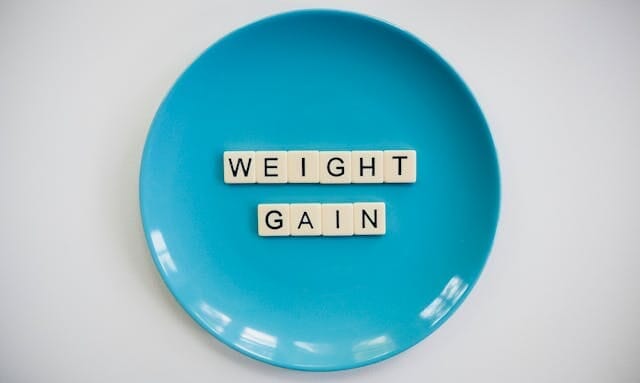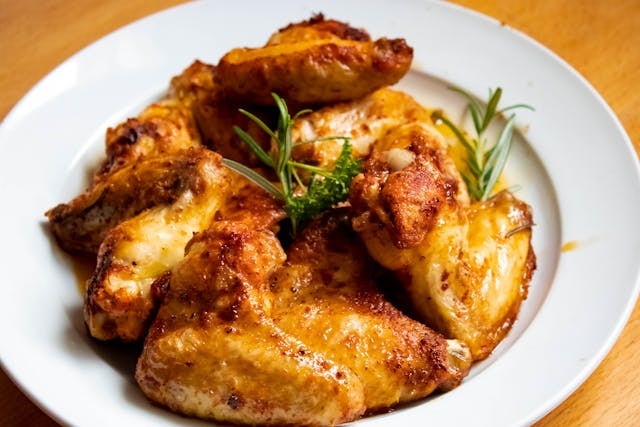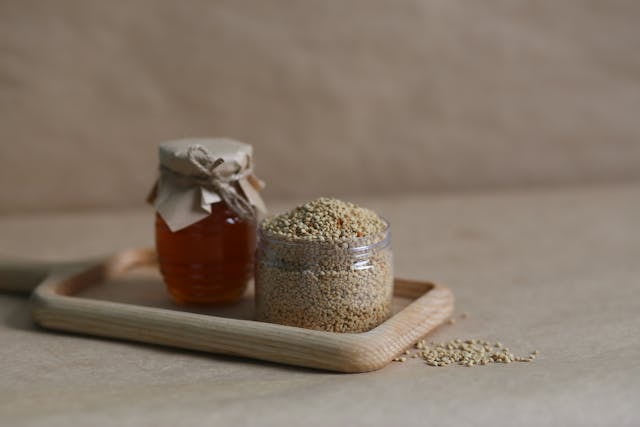
High Protein Foods for Optimal Weight gain
Time to read 11 min
Time to read 11 min
You can consume a range of protein foods that are optimal for health, strength, longevity, and weight gain.
By consuming these protein foods you can improve your overall health outcomes, lower the risk of illness, and improve your output during your workouts.
Not only do bodybuilders need their protein rich food options, but also everyday individuals. You need enough diverse protein sources for a range of biological functions.
It is vital to repair muscle injuries, hormone production and regulation, as well as enzyme production. You need proteins for your everyday life as well.
You can choose range of foods that are high in protein and are able to help you to gain weight in a steady manner. It is important to include a variety of protein sources so that you can include amino acids as well to help with muscle development and increasing muscle mass in individuals.
You can get around 15 grams of proteins in the breakfast option for eggs, when you cook them properly and get high quality eggs. You can choose larger and higher quality yellow-yolk eggs, that can help you gain B12, proteins, and a range of minerals.
Chicken is an excellent source of protein, with a range of preparations to increase its overall protein content. Of the several sources of protein available, chicken offers some of the most cost-effective options of protein per gram.
Cottage cheese or paneer is a great weight gain food that can help you improve your protein intake, as well as your fats. You can improve your overall weight gain goals when you focus on paneer or cottage cheese as a preliminary option.
Mixed nuts and seeds can offer around 6-10 gm of protein per serving. You can get a snack dose of protein and improve your overall health by enjoying a handful of mixed nuts. You can roast them or consume them directly to get their nutritional benefits.
Lentils, like daals, are important for protein consumption. You can get a large amount of proteins that are easily digestible when compared to other heavier types of proteins. You can also improve your intake of minerals and vitamins when you try different types of lentils.
Green peas or matar is an excellent source of protein, being around 30% proteins. You can get a lot of healthy protein from cooked peas, and they can be prepared in a range of options. You can also consume them if you're a vegan or vegetarian.
Kidney beans, garbanzo beans, and other bean sources are excellent for protein. You can improve your protein intake through these beans and enjoy their 20 gm per 100 gm protein intake. You can also prepare them as snacks or meals and consume them anytime.
Cheeses, like cheddar, contain a high amount of protein and fats to help with weight gain. You can get around 25 gm of protein per 100 gm of cheese. You can also try different types of cheeses to help you achieve your protein goals while also making them more appetizing.
Some of the top fish options, such as salmon and cod, can give you around 20 gm of protein per 100 gm. You can also prepare fish in a different style each time you consume them, so that you're able to benefit from their nutrients.
Almonds are a top hero food as they contain fats and proteins, while being light to consume. You can add about 6-8 almonds for around 5 gm of protein. You can consume them regularly to acquire a high quality source of protein.
Quinoa contains all 9 essential amino acids and are a great source of protein. You can get around 10 gm of protein when you consume a cup sized serving of the food. You can also improve your intake of carbohydrate when you consume them as well.
Contains peanut butter, providing it with the protein and healthy fats required for weight gain.
It has very low fat but very high protein, therefore fuelling the growth of muscle as well as lean mass.
Lean cuts like pork tenderloin has got lots of protein as well as B vitamins for energy.
Pumpkin seeds are rich in protein and minerals such as zinc that help keep your immune system and muscle up.
Whey protein is high-quality, fast-absorbing protein that helps repair muscles quickly and build fast muscle.
Black beans are high in protein and fiber and iron-dense, making them a rich fuel for muscle building in your plant-based diet.
Sunflower seed offers a healthy diet healthy fat for your calorie-dense snack or addition to your meal
Cheddar can be very calorie-dense and is high in proteins and fats that really support muscle and weight.
Hemp seeds are a complete plant protein, rich in healthy fats for added calories.
Oats have protein and carbs that will power you through for hours, building muscle.
Lamb are high in protein and iron, great for muscle gain and energy.
Tempeh is a fermented soy product that is very high in protein and very digestible.
Sardines they are rich in protein, omega-3s, and calcium to promote muscle and bone health.
These provide different kinds of proteins, fats, and nutrients for the attainment of healthy weight gain and muscle-building!
It is important to review these protein deficiency signs so that you're able to improve your overall muscle development and weight gain goals.
You may experience delayed healing from injuries which could be a sign of protein deficiency. You may also have an issue with protein synthesis or blood health issue which could be behind this as well. It is best to get a complete check up.
If you are experiencing loss of muscle mass or strength, then you may need to improve your protein intake. You can also increase your muscle mass and recovery by focusing on your protein intake and opting for high quality protein sources.
Your bone density, muscle strength, and risk of fracture can help you understand your protein needs better. You can improve your protein intake to prevent fracture risk, while also focusing on vitamin D during your weight gain journey.
There can be a range of developmental issues such as stunted growth, when there is a deficiency in proteins. It is important to know how much protein is required that can help you improve your child's development.
Achieving ideal weight gain through high protein foods is a strategic approach that will ensure you are not just increasing calories but building muscle and supporting a well-balanced, nutrient-rich diet.
For someone looking to gain weight in a healthy way, protein is one of the most important components since it is comprised of essential amino acids the body needs for muscle growth, recovery, and health.
High protein foods offer building blocks for muscle mass along with a very good diet full of vitamins and minerals. Knowing the role of protein is an best sources of protein, from either animal or plant sources, are great steps in achieving your weight gain.
A high protein diet includes a wide variety of protein-rich foods that provide ample portions of protein per serving. Chicken breast, eggs, and lean meats are full of protein and an excellent source of essential amino acids needed for muscle synthesis and repair.
Animal-based proteins generally qualify as a high-quality protein source due to the availability of all essential amino acids in an amount equivalent to what the body requires.
Plant proteins include nuts and seeds, legumes, and whole grains, forming crucial sources of protein supply to ensure diverse well-balanced nutrition.
High protein foods are useful for preserving muscle mass, which, in turn, is quite important for weight gain especially if you want to build lean muscle mass rather than pure body fat.
Muscle mass is metabolically active: it burns calories at a resting rate higher than fat can, which could be the ultimate boost for achieving healthy weight gain.
The amount of protein you should consume is dependent on your body weight, activity level, and goals. Athletes and those trying to build muscle mass may require more protein per kilogram of body weight than a sedentary person.
Protein is a macronutrient that performs many functions other than building muscles. It also ensures proper functioning of the immune system, helps in production of hormones and repairs damaged cells; this makes high-protein food highly recommended in your diet.
A high level of proteins has a large amount of vitamin and mineral intake for improved general health. In addition, fat fish, salmon, for example, will contain proteins for nutrition together with other vitamins such as omega-3 that enhances heart health by lowering inflammatory agents in one's body.
Combining high protein with healthy fats and carbohydrates found in whole grains, fruits, and vegetables would result in a more balanced meal plan to encourage sustainable weight gain.
Mixing different high protein food products in your diet also guarantees that you are going to have enough protein as well as other essential nutrients necessary for your body.
Animal-based protein sources, like beef, chicken breast, and eggs, are very high in quality protein and amino acids, but plant-based protein sources from tofu, beans, to quinoa add fiber and vitamins in your diet, so that makes this a very fulfilling and nutritional diet.
Combining different sources of plant proteins if you're following a plant-based diet enables you to get a much more complete profile of amino acids.
High protein diets are known to help increase weight gain since proteins in the diet increase satiety, reduce hunger, and keep blood sugar levels stable.
If you want to gain weight, you would like to know how much protein is appropriate for your body.
Depending on personal goals and activity, some generalized recommendations are made regarding ranges of 1.6-2.2 grams per kilogram of body weight.
High-protein consumption is often accompanied by larger muscle gains in athletic exercise participants who train in resistance.
Eggs, dairy, nuts, and seeds are versatile and fit within multiple meals of a daily diet.
Eggs are a good source of high-quality protein that can easily be added to the diet at breakfast or in between meals.
Greek yogurt and cottage cheese are examples of dairy products rich in protein and calcium, hence suitable for bone growth with the muscle mass.
Plant-based sources of protein, which are nuts and seeds such as almonds, chia seeds, and flaxseeds, are rich in healthy fats, hence calorie-dense and good for weight gain.
These foods are also high in fiber, which helps with digestive health and keeps you well-balanced.
To gain weight effectively, you should also focus on consuming protein-rich foods that offer more than just protein. Whole foods such as fish, lean meats, beans, and dairy products contain a wide array of vitamins and minerals necessary for overall health.
If you're looking to add weight, keeping track of your protein is a huge help in doing so. You can supplement your protein intake through protein shakes or supplements if you are not able to obtain it naturally from the foods you consume.
Typically, you wouldn't want to look for the extra supplements just because whole foods often are better balanced in their nutrient makeup to contain fiber and other beneficial nutrients.
Other sources are the intake of diverse, high protein foods in an effort to avoid deficiencies and ensure that one has a balanced diet. Foods high in protein include lean meats, dairy, legumes, and whole grains. These sources should be as frequent in your diet as possible.
Heart health is another concern in choosing high protein foods for weight gain. Certain high protein foods, including red meats, are saturated in fat, which raises heart disease risk if eaten in excess.
Therefore, balance your protein source by including lean meats, poultry, fish, and plant options.
High protein foods are rich in protein, providing your body with the required nutrients to grow muscles and gain weight. Such foods include animal-based sources such as chicken breast, eggs, and dairy and plant-based protein sources like nuts, seeds, legumes, and grains. Inclusion of such foods in your diet may lead to an increase in your muscle mass and total weight in a healthy way.
The quantity of proteins needed depends on such as age, activity levels and even body weight objectives. There exist more people that may intend to gain weight to the level of bulk up than other users. Nutrition experts are more aggressive on daily consumption of protein ranges between 1.2 up to 2.2 grams per kilogram weight. It is possible with a nutritionist's consultancy about the intake to satisfy different requirements.
The best high protein foods for weight gain include a variety of protein-rich options:
•Chicken breast: A lean source of protein with minimal fat.
•Eggs: High in protein and provide essential amino acids.
•Greek yogurt: High in protein and beneficial probiotics.
•Nuts and seeds: Excellent sources of protein, omega-3 fatty acids, and healthy fats.
• Legumes : Beans, lentils high in good protein, especially for vegan and vegetarians.
It will do well for healthy weight gain, especially if introduced as part of a diet with healthy fats and carbohydrates. Therefore, protein is deemed as one of the macronutrients that are necessary, but basic; supporting muscle growth becomes a pressing need in the context of weight gain. Key to long-term health therefore lies in the consumption of protein-rich foods together with whole foods providing much required vitamins and minerals.
For instance, if you prefer plant-based protein, nuts, seeds, legumes, tofu, and tempeh are rich in protein and contain the essential amino acids that your body needs. These sources of protein are ideal for vegetarians and vegans, promoting muscle growth and healthy weight gain.
*Medical Disclaimer - The following information is for educational purposes only. No information provided on this website, including text, graphic, and images, are intended as substitutes for professional medical advice. Please consult with your doctor about specific medical advice pertaining to your condition(s).












